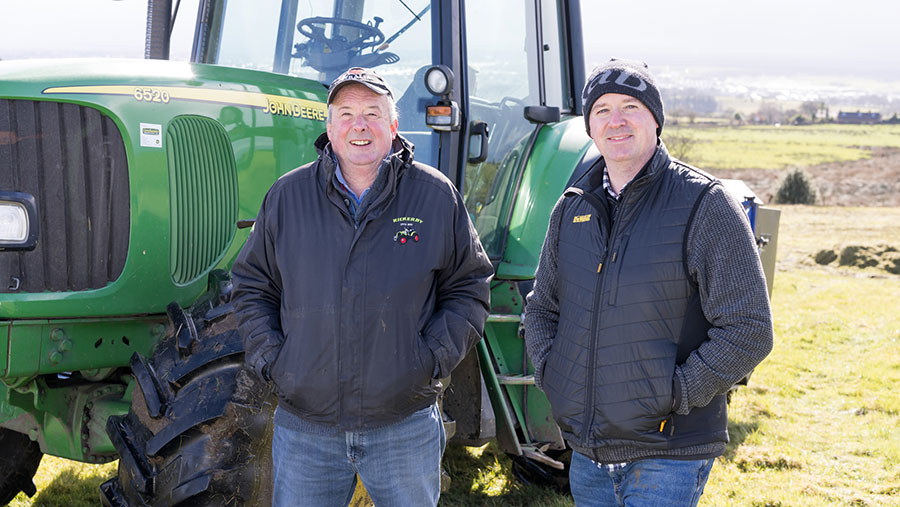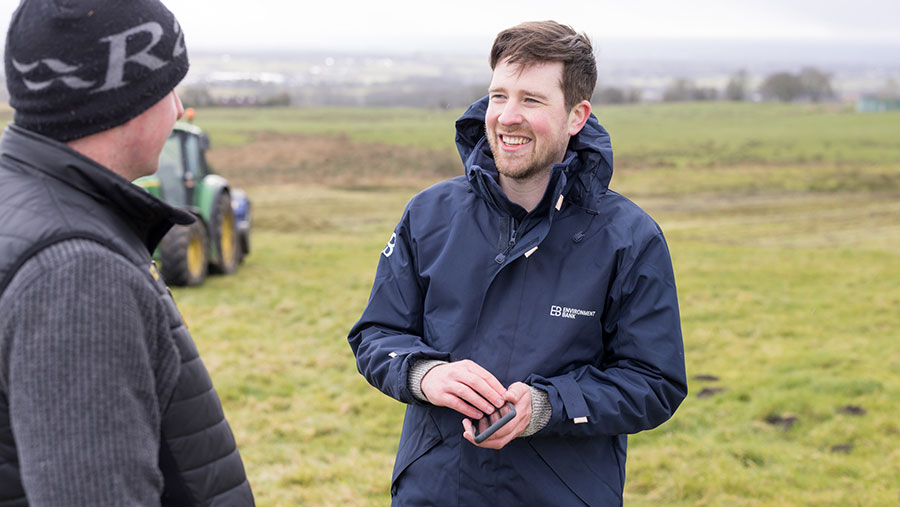Advertiser content
The farmers protecting their future with nature restoration
Provided by
Environment Bank is leasing parcels of land to co-create biologically diverse habitats that will play a key role in addressing the critical issue of biodiversity loss whilst providing long-term income to landowners.
 Richard and John Pendlebury, Yate Fold Farm © Environment Bank
Richard and John Pendlebury, Yate Fold Farm © Environment Bank Like many farmers, Richard and John Pendlebury, of Yate Fold Farm near Bolton, Greater Manchester, found making an income from their family farm was no longer financially viable, due to rising costs and plummeting returns.
They needed a new plan if they wanted the third-generational family farm to continue profitably – and they turned to biodiversity restoration.
Richard and John are part of a growing number of farmers integrating new environmental diversification schemes into their farming business.
Yate Fold Farm will soon be planted with over 49 hectares of new habitat, including lowland meadow, natural grassland, lowland fen and ponds, and used for large-scale biodiversity restoration – helping to secure the farm’s future.
Helping farmers diversify their business – the Yate Fold Farm story
The farm has been in the Pendlebury family since the 1950s and has been primarily dairy up until now, and incorporates grade 4 pasture land.
However, the cost of milk production has not proved reliable for generating an income.
Farm manager Richard was determined to innovate, explore and implement new farming practices to ensure a sustainable and diverse income for his future and the future of his family.
Innovation isn’t new to the family. They turned to organic farming in 2000 which whilst rewarding, proved to be labour intensive and challenging to make a success, with both Richard and his father John working 70-hour weeks looking after 80 head of cattle.
With his father now approaching retirement, the farm needed a fresh focus.
John said: “I felt around two or three years ago that the organic avenue started to run out of steam. We realised that we needed a new venture and a viable way to diversify our income. And that’s how we discovered Environment Bank.
“I’ve always loved farm life and my cattle. This Habitat Bank means we’ll have a new and interesting enterprise and I can still run a herd of beef cattle suitable for conservation grazing, managing the farm as it always has been, just not in such an intensive way.
“We’ve got to look towards the future. It’s Richard’s future. I’m here to support, but ultimately it’s for the grandchildren to carry on with if they so wish, and it’s there for them.
“I think my father would be over the moon about the way we have constantly evolved his farm and its land use and continue to make it a success.”
Richard added: “The benefits of creating a Habitat Bank on our farmland, including financial, are abundant. The government schemes simply didn’t match what Environment Bank offered.

Habitat Bank creation is supported by Environment Bank ecologists for the full term, including all monitoring and reporting. © Environment Bank
“The Environment Bank model means we’ll receive a reliable income for at least 30 years which is very reassuring, and quite rare in the farming sector.
“It is also a bit of a relief for us too that we can just concentrate on what we are doing as land managers and let the team of ecologists at Environment Bank see to all of the other aspects of the biodiversity net gain (BNG) scheme.
“They know how to develop the land to benefit nature as well as how to work with the local authorities for developers to purchase the BNG units the land will yield.
“Diversification is the way to go for small businesses like ours. Sometimes, you just need to take the blinkers off and open your eyes to new opportunities for your business.
“We will also be able to boost our income from the new cattle on the land. Environment Bank is putting me through a conservation grazing course and the breed of cattle I’m going to invest in will graze for conservation purposes, improving the quality of the land, but also enabling premium prices for the beef.
“Most importantly, by opening up this new income stream, we’ll be able to pursue a work-life balance, which is especially valuable with having a young family, and the farm will hopefully be secured and enjoyed for generations to come.”
Working with farmers across England
‘Habitat Bank’ creation is happening at quite a pace; there are already over 20 sites underway, with an additional 60 scheduled to commence over the rest of this year.
The Yate Fold Habitat Bank is on track, with initial groundworks being carried out this year and planting starting soon after.
The family, with support from the ecologists at Environment Bank, will be establishing lowland meadow and natural grassland, and creating ponds and scrapes, to encourage wildlife back to the area such as lapwing and curlew, which are in decline locally.
They are also planning to use the Habitat Bank for educational purposes as well enabling people to enjoy it via the existing public footpaths.
Richard continued: “It is important to us as a family having our land on the edge of the urban fringe of Greater Manchester and all of its continuous developments that we can help educate, protect nature and the environment whilst helping to minimise environmental impacts from these developments.”
How Habitat Banks generate income
Farmers that partner with Environment Bank to create a Habitat Bank (typically between 20-100 hectares in size) still retain ownership of their land, with Environment Bank taking a lease interest.
The management plan of the Habitat Bank, created by the team of expert ecologists, is tailored to suit existing land management strategy to ensure the most tax-efficient solution.
Environment Bank pays farmers up to £27,000 per hectare, and sometimes more, over a 30-year period with fixed annual uplifts to counter inflation for the management and lease of the land, as well as a generous welcome bonus.
Being fully funded through sustainable investment, Environment Bank typically arranges lease and management payments within 20 weeks of registration and covers all costs for establishing and managing the Habitat Banks, extending to legal and tax advice where required.
Environment Bank makes its money by selling biodiversity net gain (BNG) units, generated on the Habitat Banks to developers, enabling them to meet their obligations under the Environment Act, whilst managing the complex implementation processes with all liability and risk sitting with them.
To find out more, call 01904 202 990 or visit environmentbank.com.
